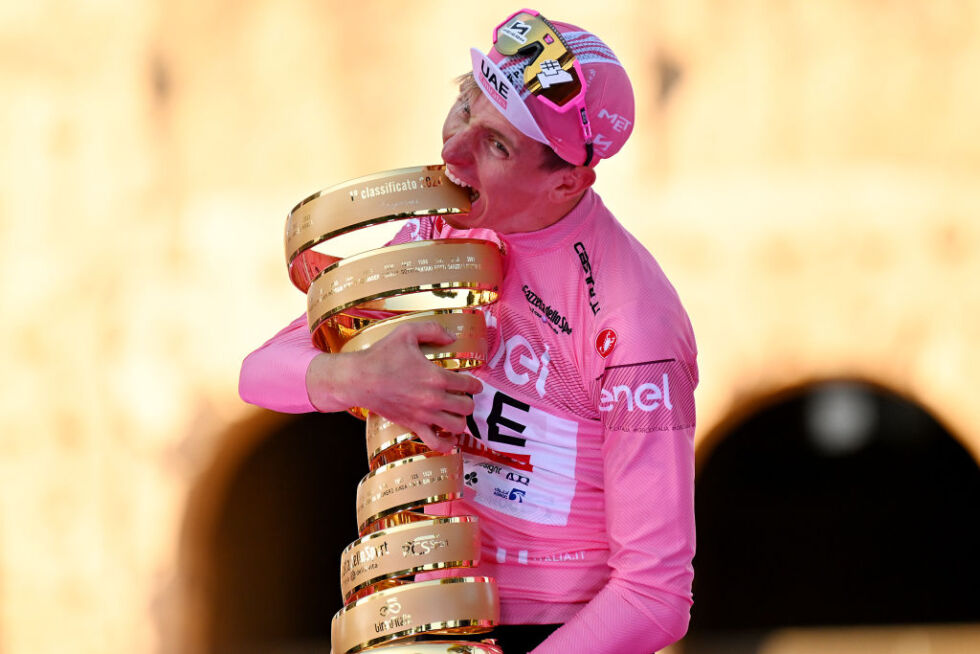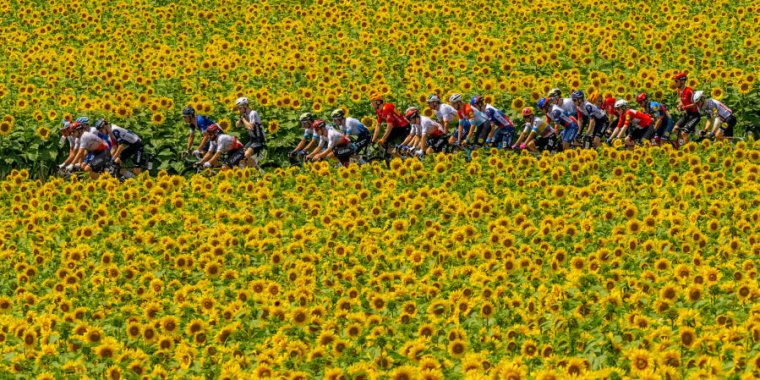David Ramos/Getty Images
Most readers probably didn’t expect to see a Tour de France preview on Ars Technica, but here we are. Cycling is a huge passion for me and many other team members, and this year, there’s a lot of intrigue surrounding the race, which has a fantastic route. So we’re here to spread Tour fever.
The three-week race begins on Saturday, paradoxically in Italy’s Florence region. Usually, there is one dominant rider, or at most two, and a clear idea of who is likely to win the demanding race. But this year, because of riders’ schedules, a horrific crash in early April and new contenders, there is more uncertainty than usual. A strong case could be made that at least four riders will win this year’s Tour de France.
For people who aren’t fans of professional road cycling (which has to be at least 99 percent of the United States), there’s a great series on Netflix called Unchained to help you get up to speed. The second season, just released, covers last year’s Tour de France and features most of the protagonists of the upcoming edition. If this article sparks your interest, I highly recommend checking it out.
Anyway, for those who are curious about cycling, I want to set the stage for this year’s race by saying a little about the four main contenders, from the most likely to win to the least likely to do so, and provide a little backstory to what could very well be a dramatic race this year.
Tadej Pogačar

Tim de Waele/Getty Images
- Slovenia
- 25 years
- Team United Arab Emirates
- Odds: -190
Pogačar burst onto the cycling scene in 2019, at the tender age of 20, by finishing third in the Vuelta a Espana, one of cycling’s three Grand Tours. He then won the 2020 and 2021 Tours de France, first surprising compatriot Primož Roglič (more on him below) in 2020 and then completely dominating in 2021. Given his youth, it looked like he would be the leading Grand Tour contender for the next decade.
But then in 2022, another slightly older driver emerged, a teammate of Roglič named Jonas Vingegaard, who won the next two races. In fact, last year, Vingegaard beat Pogačar by 7 minutes and 29 seconds in the Tour, a huge margin of victory, especially for two riders of relatively close talent. This established Vingegaard as the alpha male of grand tour riders, having proven to be a better climber and time trialist than Pogačar, especially on the higher and more difficult stages.
This year, Pogačar decided to change his strategy. Instead of focusing on the Tour de France, he took part in the first grand tour of the season, the Giro d’Italia, which was held in May. He probably did this for a couple of reasons. First, he almost certainly received a generous participation fee from the Italian organisers. And second, taking part in the Giro would give him an easy excuse not to beat Vingegaard in France.
Why? Because there are only five weeks between the end of the Giro and the start of the Tour. So if a rider arrives in his best form for the Giro and is trying hard to win the race, it is generally assumed that he will not be able to arrive at the Tour in shape to win. He will be a few percent below expectations, as he will not have had ideal preparation.
Unsurprisingly, Pogačar crushed the lesser competition in the Giro and won the race by 9 minutes and 56 seconds. Because he was so far ahead, he was able to take the last week of the race a little easier. The general thinking in the cycling community is that Pogačar arrives at the Tour in excellent shape, but not in top form. But given everything that’s happened so far this season, bettors believe that will be enough for him to win. Maybe.
